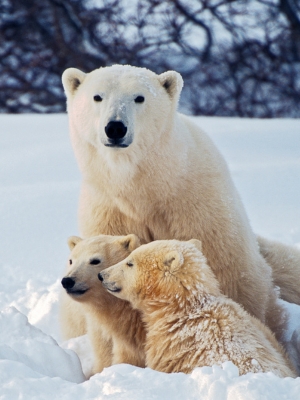Reports have surfaced in the last few days from a source within the U.K. government that suggest that the keeping of elephants in zoos may be banned there under new legislation currently under consideration. While still unconfirmed, this bold step would create a precedent that Born Free USA hopes will encourage the U.S. and other countries to introduce similar measures.
As one of the most physically and socially complex species in the world, elephants have many requirements that zoos simply cannot meet within an artificial environment, including daily ranging distances totaling 30 miles, life-long family groupings with strong emotional bonds ruled by an elder matriarch, and a highly varied herbivorous diet that changes based on seasonal fluctuations within the environment. Without appropriately meeting these extremely specialized needs, captive elephants often suffer from complications related to arthritis, obesity, and depression. If these examples still fail to communicate the torturous nature of keeping elephants in captivity, the lifespan of a captive elephant is halved compared to that of her wild counterpart; elephants often live up to 70 years in the wild, yet rarely reach 40 years old in captivity.
Born Free was founded in 1984 following the tragic and untimely death of an elephant called Pole Pole in London Zoo. Since that time, the Born Free has campaigned for an end to wild animal captivity in zoos. Indeed, while the keeping of elephants in zoos remains legal around the world, the deaths continue. At the time that the reports of a ban were circulating came the tragic news of the death of an adult male elephant named M’Changa at the Noah’s Ark Zoo in Somerset, England. Another male reportedly attacked and killed M’Changa during the night. M’Changa lived with two other bachelor males for three years prior to this incident. The zoo has a history of controversy, having been exposed for links to big cats in a notorious animal circus, as well as being criticized for its promotion of creationist educational resources and teaching young people that humans are not related to apes. Regardless of the reputation of the zoo, elephant suffering in captivity is widespread around the globe and unnecessary, yet predictable, deaths like M’Changa’s are a consequence of this cruelty.
Wild animals are typically kept in unnatural conditions in captive settings that conflict with how they evolved, which often initiates the onset of aggressive and frustrated behavioral states. Wild male elephants usually live in small family groups until they reach adulthood (at eight or nine years of age). After this age, depending on their reproductive condition, they venture off in search of mates, in multi-female groups, or, less frequently, join a bachelor group of mature bulls. Bulls typically transition from one group to the next, as mature bulls often display aggressive behavior to assert dominance. Therefore, it seems that M’Changa unjustly fell victim to his cage-mate’s instinctual actions; a fate that he may have escaped in a larger and uncontained space in the wild.
If the ban goes forward, Born Free USA hopes to see similar moves here in the U.S., not just for elephants but for other species commonly held captive. What is needed is a shift from pouring resources into captive animals for the sake of entertainment to prioritizing species and habitat conservation in the wild. This shift would prove immeasurably valuable, as elephants, for example, remain one of the most heavily trafficked wild animals in the world, which decreases their already unstable population numbers daily. The IUCN Red List currently classifies all elephant species as Critically Endangered or Endangered with Decreasing population trends. Time will tell if the ban comes to fruition – we will keep you updated as we learn more.
Keep Wildlife in the Wild,
Devan

 Dear Reader,
Dear Reader,